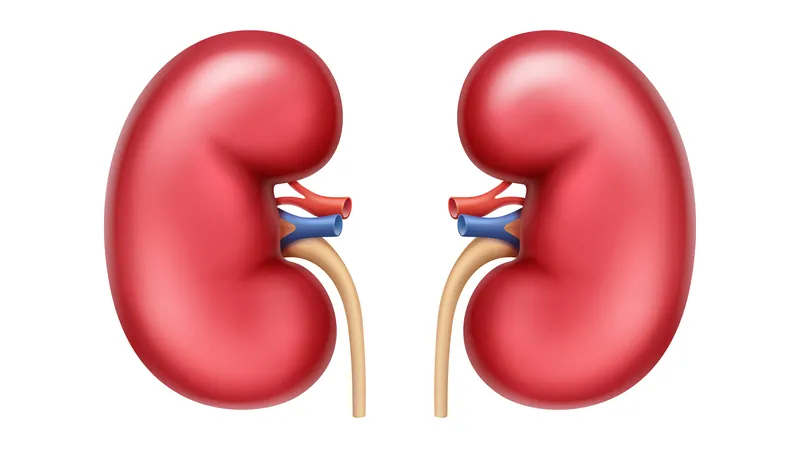Kidney
The kidney’s main function is to filter waste products out of the blood and deliver the resulting urine to the bladder. The functional unit of the kidney is called the nephron, and each kidney contains about a million nephrons. In each nephron, blood is first filtered in the glomerulus and Bowman’s capsule. The filtered fluid then travels through the renal tubule. Here, some molecules that weren’t filtered, such as glucose, are reabsorbed into the bloodstream, while others, such as ammonia, are actively secreted into the urine. Renal tubules from multiple nephrons merge together to eventually form the ureters, which transport urine from each kidney to the bladder. The kidneys also play a role in vitamin D activation, blood pressure regulation, and regulation of blood cell production.
Kidney function declines with age and can eventually lead to chronic kidney disease, one of the top ten causes of death in the United States. Its causes include diabetes, high blood pressure, multiple drugs such as lithium, and certain chemotherapies. The incidence of kidney cancer also increases dramatically with age. Because of the kidney’s function, this organ is also highly sensitive to the age-related decline in vascular function. Other kidney diseases, such as trauma, congenital defects, autoimmune diseases such as lupus, and obstructions such as kidney stones, can occur at any age. Dialysis can extend the life of patients with kidney dysfunction, but it significantly decreases their quality of life and results in complications with long-term administration.

